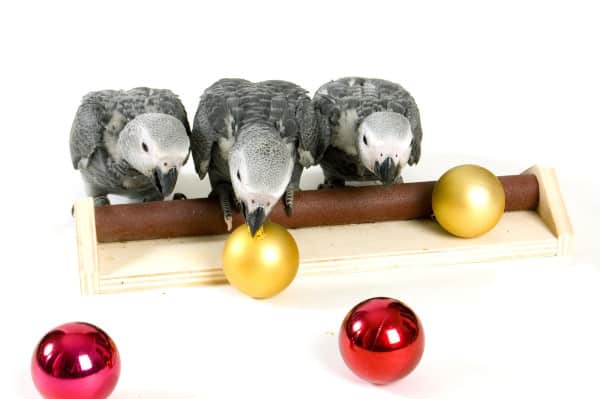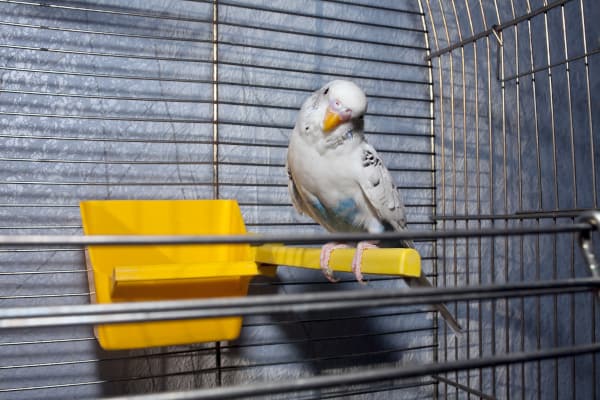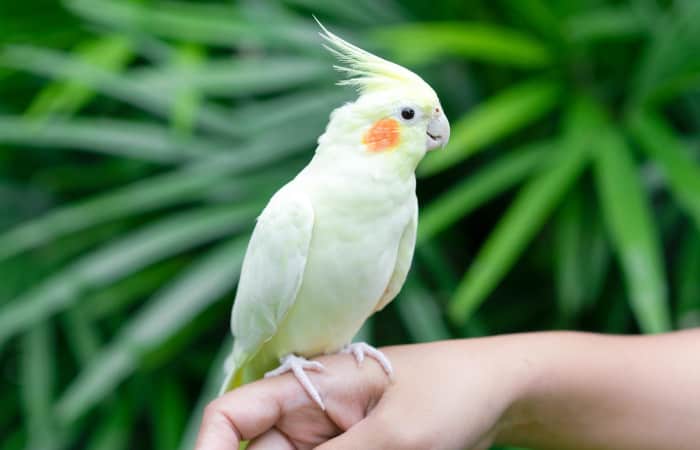Stimulation is an essential part of keeping a parrot healthy. It helps to provide mental, physical, and emotional stimulation that allows the parrot to stay engaged and maintain their natural behaviors. There are 8 fun activities to help stimulate your parrot’s mind.
Stimulating your parrot’s mind is important because it encourages learning, reduces stress and boredom, increases confidence, strengthens the bond between you and your bird, and teaches them how to better interact with their environment.
The benefits of stimulating your parrot’s mind are numerous; they will be more active, alert, inquisitive, and interactive.
Additionally, they may even exhibit more advanced problem-solving skills as well as improved communication skills with others.
Why both mental and physical stimulations are important for your parrot’s mind?
Mental and physical stimulation is essential for parrots because it helps them to stay mentally and physically fit.
Mental exercises like problem-solving, puzzles, and even hide-and-seek activities help to develop cognitive abilities such as learning new behaviors, understanding causes and effects, making decisions, and forming memories.
Meanwhile, physical activities provide a way to maintain their muscular strength, agility, balance, coordination, flexibility, endurance, and overall fitness.
You may also like: Do Parakeets Like To Climb?
8 Fun Activities to Stimulate Your Parrot’s Mind
1. Playing Puzzle Toys
Puzzle toys are great for stimulating your parrot’s mind as they have to figure out how to move pieces or open a hidden compartment in order to get the treat inside.
Not only will they be physically moving and exercising, engaging their minds with problem-solving puzzles, but they are also learning that if they persevere, eventually they will get the reward at the end of the game.
Puzzle toys come in many varieties and can be customized depending on your parrot’s capabilities.
2. Introducing New Sounds and Objects

Another fun way to engage your parrot’s mind is by introducing them to new sounds and objects.
Expose them to the sound of music, calm or loud talking, or even a variety of noises such as squeaking toys or rattles.
You can also present them with new textures such as fabrics and give them objects like paper bags and boxes to explore.
New things in their environment will encourage curiosity and foster problem-solving skills that can help your parrot stay mentally active.
3. Exploring New Environments
Taking your parrot on a short walk or letting them explore outside of its cage can be very stimulating and provide them with some much-needed mental stimulation.
This also gives you the opportunity to observe and interact with your parrot in a fun, non-stressful environment.
The sights, sounds, and smells of the outdoors are natural sources of stimulation that can help engage your parrot’s mind, as well as introduce them to some new objects and experiences.
Make sure to keep an eye on your parrot when exploring outdoors and never leash them for safety reasons.
You may also like: Why Is My Parakeet Walking In Circles?
4. Creating Foraging Opportunities
Creating foraging opportunities is an excellent way to stimulate your parrot’s mind. Fill their cage with paper bags, boxes, and other hiding places for them to explore and uncover treats.
You can also hide small pieces of food around the house so that they can search for their rewards.
It’s important to note that if you’re using fruit or vegetables they must be taken out at the end of each day as it spoils quickly.
Foraging helps keep your parrot alert and engaged while encouraging problem-solving skills and boosting their confidence.
5. Teaching Basic Commands and Tricks
Teaching your parrot a few basic commands and tricks is a great way to keep them stimulated.
Start off by teaching them simple behaviors such as “step up” or “come here”. You can then teach them more complex behaviors such as saying specific words or playing fetch with a toy.
Training your parrot will give you the opportunity to interact with them in a positive manner while emphasizing good behavior, which will help build their confidence.
Consistency is key when it comes to training, so make sure you practice regularly with your parrot!
6. Bonding Through Play Time and Socialization

Spend time bonding with your parrot by engaging in regular play time and socialization. This can include playing with them using toys, playing with their food, gently petting them, or talking to them.
Doing so will help strengthen the relationship between you and your parrot as well as develop their cognitive abilities.
Additionally, interacting frequently helps keep your parrot alert and engaged throughout the day while reducing stress levels.
Create a positive atmosphere when engaging in these activities, and always remember to reward your parrot for good behavior!
7. Developing Habits With Scheduled Training Sessions
Understand that parrots learn best with consistency, so scheduling regular training sessions will help your parrot develop habits more easily.
Take some time to plan out what type of commands and tricks you would like to teach your parrot and set a timeline for when you would like them to be accomplished.
This will give you a goal to work towards, as well as provide the structure that both you and your parrot can benefit from.
Additionally, make sure to end each session on a positive note by giving treats or affection, as this will reinforce the learning and help maintain the habit in the future!
8. Using Positive Reinforcement When Teaching New Skills
Parrots are highly intelligent creatures and can be taught a variety of skills with patience and positive reinforcement.
Whenever your parrot does something correctly, make sure to reward them with treats or affection to reinforce the behavior you want to see.
Additionally, avoid using physical punishment such as scolding or spanking, as this will only lead to stress and confusion in your parrot.
Instead, take the time to explain what it is they did wrong and help them develop an understanding of the desired behavior.
With patience and positive reinforcement, you’ll be able to teach your parrot successful habits!
You may also like: Why Does My Budgie Hang Upside Down?
Conclusion
Parrots are intelligent and inquisitive animals that need regular mental stimulation to stay healthy and content.
From foraging activities to puzzle toys, there are plenty of fun ways to challenge your parrot’s mind.
Try out a few activities today to keep your parrot’s curiosity alive!

